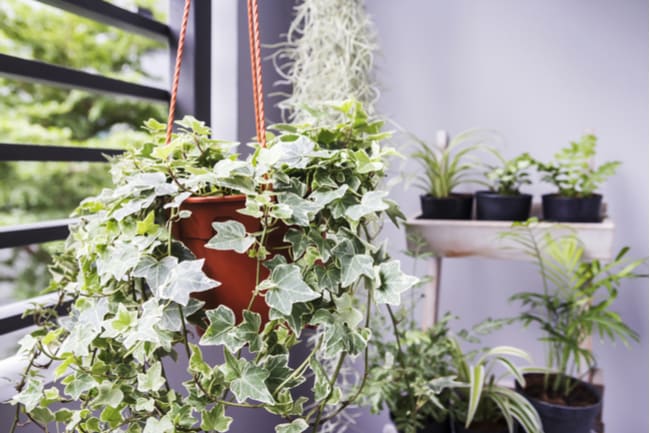Purify the Air in Your Home With These NASA-Recommended Plants

You probably know that the addition of houseplants can improve the way a room looks in no time at all. But did you know that houseplants can actually improve the way a room feels? That’s right. Indoor plants are natural air purifiers, and incorporating them into your home is not only an aesthetically pleasing experience, but it’s also something that can change the quality of your life.
Back up. What’s wrong with the air inside my house?
In a word: lots. We live in a polluted world, and that’s not limited to the air we breathe outdoors. In fact, sometimes the air inside our homes can actually be dangerous to breathe, especially if you are or live with a smoker. Depending on your lifestyle and certain environmental interactions that take place inside your home, you may be breathing in all sorts of harmful toxins. These can range from the everyday, like ammonia (in your window cleaners) and formaldehyde (in your paper towels) to the deadly, like black mold (in your basement) and lead particles (in the old paint on your walls). Scary, right?
Okay, you have my attention. What can I do about it?
Luckily, there’s a relatively simple solution to purifying the air in the space you live: houseplants. Cheaper than pricey professional air filters, the right houseplants can help cleanse the air of potentially harmful toxins without running up your electric bill. And as a bonus, they look great, too.
Why should I believe you?
Don’t take it from us--take it from NASA. According to NASA, plants are “nature’s life support system,” and they can help purify the air. In fact, in the 1980s, NASA actually released a list of the best houseplants for air purification. Talk about official.
So how does it work?
When you fill your indoor space with houseplants, they will begin to absorb the particles in the air through their leaves and their soil. If the air particles include pollutants, then those get removed as well. It’s as simple as that.
Which houseplants are the best for air purification?
Some plants are naturally better at removing pollutants from the air. As a general rule, houseplants with larger leaves are better than ones with smaller leaves, but use this list as a place to start:
- Garden Mums are fantastic options for indoor air purification. In particular, they’re great at absorbing ammonia and formaldehyde from the air in your home.
- The Ficus (also known as the Weeping Fig) works well in larger spaces, as it can grow up to 10 feet tall. Not only does it serve as a dramatic statement piece, but it also is super low-maintenance. Its specialities include removing benzene and formaldehyde.
- Just as the Ficus is good for larger spaces, the Peace Lily suits small spots. And while they’re tiny in size, they’re mighty in their air-purification abilities. They’re known for removing pollutants like ammonia and trichloroethylene.
At the end of the day, the amount of pollutants in your home depends on a variety of factors, and if you believe that you may be living in a space with more serious toxins present, then you may need to take more serious steps toward air purification. However, for cases of everyday pollutants, these NASA-recommended plants are a tried-and-tested remedy.
Sources:
Janowiak, Maria. (2015, March 3.) 9 Air-Cleaning Houseplants That Are Almost Impossible to Kill. https://greatist.com/connect/houseplants-that-clean-air
Pinola, Melanie. (2015, May 10.) This Graph Shows the Best Air-Cleaning Plants, According to NASA.https://lifehacker.com/this-graphic-shows-the-best-air-cleaning-plants-accord-1705307836
